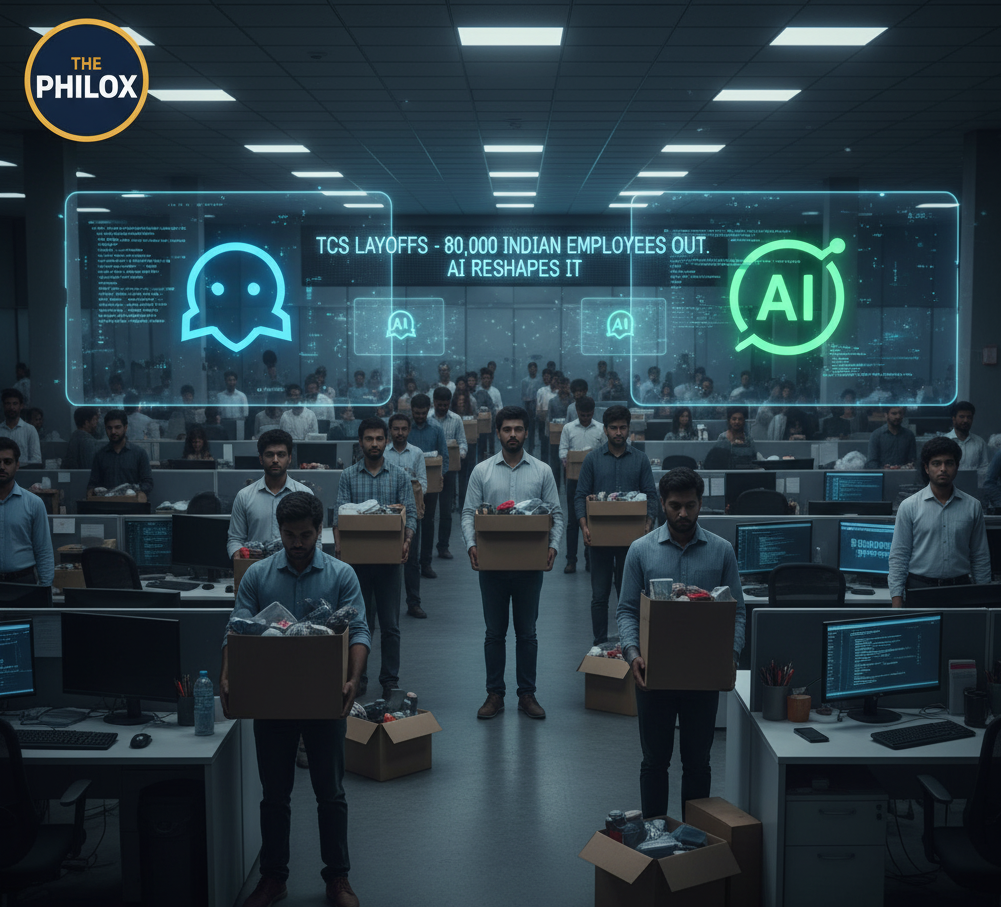In an earth shattering news, which has spread ripples in the giant Indian IT industry, Tata Consultancy Services (TCS), the Indian giant employer, has reportedly undertaken a massive lay-off exercise with the possibility of laying off up to 80,000 Indian workers.
Despite the official statements of the company being cautiously phrased to avoid confirming the numbers, rumors, and panic posts in internal forums describe a bleak outlook of massive layoffs due to the disruptive nature of the newer, faster evolution of Artificial Intelligence, which includes the likes of OpenAI ChatGPT and Google Gemini, as well as others.
Such massive scale of the knowledge employee layoff highlights a critical paradigm shift in the international IT services paradigm and necessitates a brutal confrontation with generative AI abilities.
The cause of this mass displacement is the exponential increase in automation possibilities based on these advanced models of AI. The work that was traditionally done by entry-level, mid-level, or even senior IT professionals, such as basic coding, debugging, and quality assurance, customer support, data processing and even the design architecture foundations are done nowadays with amazing speed and precision by AI. According to insiders, some projects that previously needed to have large human crews are being handled by lean, highly specialized teams enhanced by using powerful AI tools.
The fact is that this technological breakthrough has made a big part of the traditional IT workforce unnecessary overnight, and this compelled companies such as TCS to essentially reassess the shape and makeup of their operations and cost-effectiveness.
Layoffs are not only cost-cutting, but they constitute a strategic shift towards an AI-based future. Like its counterparts around the world, TCS is known to be greatly spending on higher-order training of fewer and more specialized workers who can design, implement, and control AI systems, instead of having them handle the manual workload that is now automated. This introduces a dire skills deficiency that exposes a wide bracket of workers with conventional IT skills to the danger.
The effects on the young tech talent market, which India is currently seeing, are expected to be massive and leave a wider re-evaluation of education and career options as the market for traditional IT services eventually fades in favor of AI-native services.
Although the human cost of such a huge mass of layoffs is admittedly devastating, some industry analysts are looking at the move on the part of TCS as necessary, though painful, in terms of readjusting to the new realities of the digital economy.
The implication, which is not openly stated, is that this is only the tip of the iceberg which will engulf other major IT service providers as businesses are in a frenzy to incorporate AI as part of their main services to stay afloat. The days of the predictable and labor intensive IT services, seemingly, seem to be coming to an end, replaced by a leaner, smarter and even more disruptive AI powered paradigm, and leaving tens of thousands of lives in its wake, to be left to find their way in an uncertain future.









